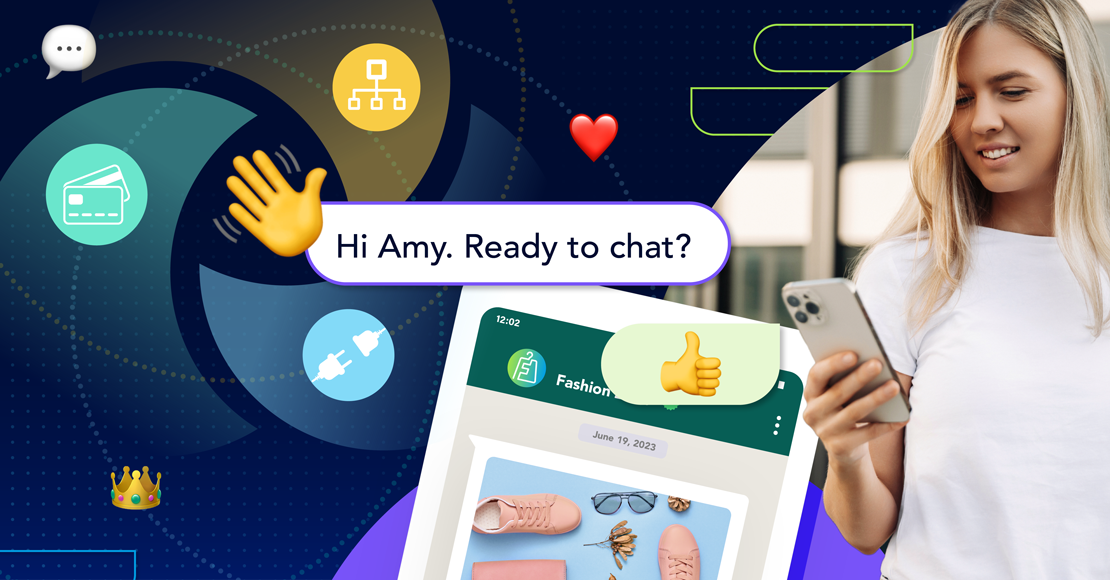
SMS, which stands for “short message service,” is a standardized communication protocol primarily used by mobile devices. When you send someone a text message, you take advantage of SMS technology.
An SMS gateway makes it possible for a broader range of devices and applications to communicate with each other. For example, you could use a computer to send an SMS message to someone’s smartphone. Most times, the message leaves your computer in a format that’s incompatible with SMS. SMS gateways translate the message so the mobile device can understand it.
A gateway can also work in the opposite direction, allowing mobile device users to send messages to computers.
SMS gateways have evolved considerably over the last couple of decades. Early mobile devices had built-in physical gateways. The gateway hardware included the device’s SIM card and an embedded radio.
Today, consumers and businesses do not need to rely on devices with an SMS hardware gateway. Instead, they can use cloud-based systems that translate and communicate messages seamlessly. This improvement in technology comes from messaging gateway APIs that can deliver messages to specific devices at specific times.
What Is an SMS API?
SMS gateways can function because they use APIs that let two systems share information with each other. An API (application programming interface) essentially makes integration possible between multiple applications, networks or databases. For example, when you use a mobile app like Expedia to find airline options that match your search requirements, the app uses multiple APIs to communicate with databases. The app can then aggregate information from multiple sources and present them to you for easy consideration.
Even though the app and the databases use different languages, they can communicate because the API creates a connection and translates data as it moves between the systems.
An SMS API focuses on the unique requirements of mobile devices. Instead of connecting with a specific application, it can translate messages from a computer and give them to mobile devices.
How Does an SMS API Work?
SMS APIs work by letting telecom carriers connect devices to the internet. Thanks to the API technology, telecom carriers do not need a platform to interpret diverse data formats between devices. Instead, messages go straight to the SMS API, which automatically turns it into an appropriate format for the recipient's device.
Thanks to SMS APIs, mobile devices do not need internet access to receive messages from computers. As long as the message gets translated and distributed as SMS, cell phones and similar devices can receive and interpret them.
An example may make it clearer how SMS APIs work.
When Company A wants to send Customer X a text message confirming that they recently signed up for a membership, one of the company’s computers automatically sends a message to the API. At this point in the communication exchange, the cell phone would not understand the message. The API takes the message from Company A’s computer, translates it into a format that Customer X’s cell phone understands, and passes the message along to the device. Now, Customer X has a text message confirming that they signed up for a membership with Company A.
Without an SMS API, Company A would need to send the message from a cell phone or smartphone, creating a tedious process.
An SMS gateway makes the transmissions even more efficient by letting computers and servers send large amounts of messages instantaneously. Even if 1,000 customers applied for a membership with Company A, they would all get a confirmation text almost immediately.
Do's and Don'ts of Using Bulk-sending Gateways
To get the most out of your gateway, you will need to follow and avoid some practices.
Do: Require Consumers to Opt-in Before You Send Messages
The FCC (Federal Communications Commission) and the FTC (U.S. Federal Trade Commission) do not let companies send messages to a consumer until the person “opts-in.” Texts must also include a message that gives consumers an opportunity to opt-out of future communications.
Federal laws let people add their phone numbers to the National Do Not Call Registry. Companies cannot send texts to numbers on the Do Not Call Registry unless they have received permission from the person who controls the number’s account.
Don’t: Choose an SMS Gateway With Limited Reach
Not everyone cell phone service provider’s network uses the same format. That’s why you often have to purchase a new device when you switch to a different carrier.
An SMS gateway can have a similar limitation. Look for a gateway that can connect with as many networks as possible. If the gateway cannot communicate with at least 1,000 global networks, your business probably will miss opportunities to communicate with consumers in the U.S. and emerging markets.
Do: Choose a Service That Offers REST API
REST API offers several advantages that you will not get from SOAP. By choosing a service that offers REST API, you get:
Options to use a wider range of data formats.
Faster communication that uses less bandwidth.
Superior performance by caching data when necessary.
Opportunities to connect through more communication apps like WhatsApp and Facebook Messenger.
You can also get good functionality from a basic HTTP API. HTTP APIs are easy to use, but they lack the security features that you will get from REST API.
Get Started With an SMS API Today
The SMS API that you choose affects who you can send messages to and how quickly your communications move. Clickatell gives you an advantage with a secure, cloud-hosted, scalable platform that offers intelligent routing, global reach, and two-way text messaging.
Click here to find out more about our SMS gateway product or here to achedule a conversation with Clickatell today to discuss your options. An expert can help you choose the perfect resources for your business’s needs.
Explore other articles
Step into the future of business messaging.
SMS and two-way channels, automation, call center integration, payments - do it all with Clickatell's Chat Commerce platform.








